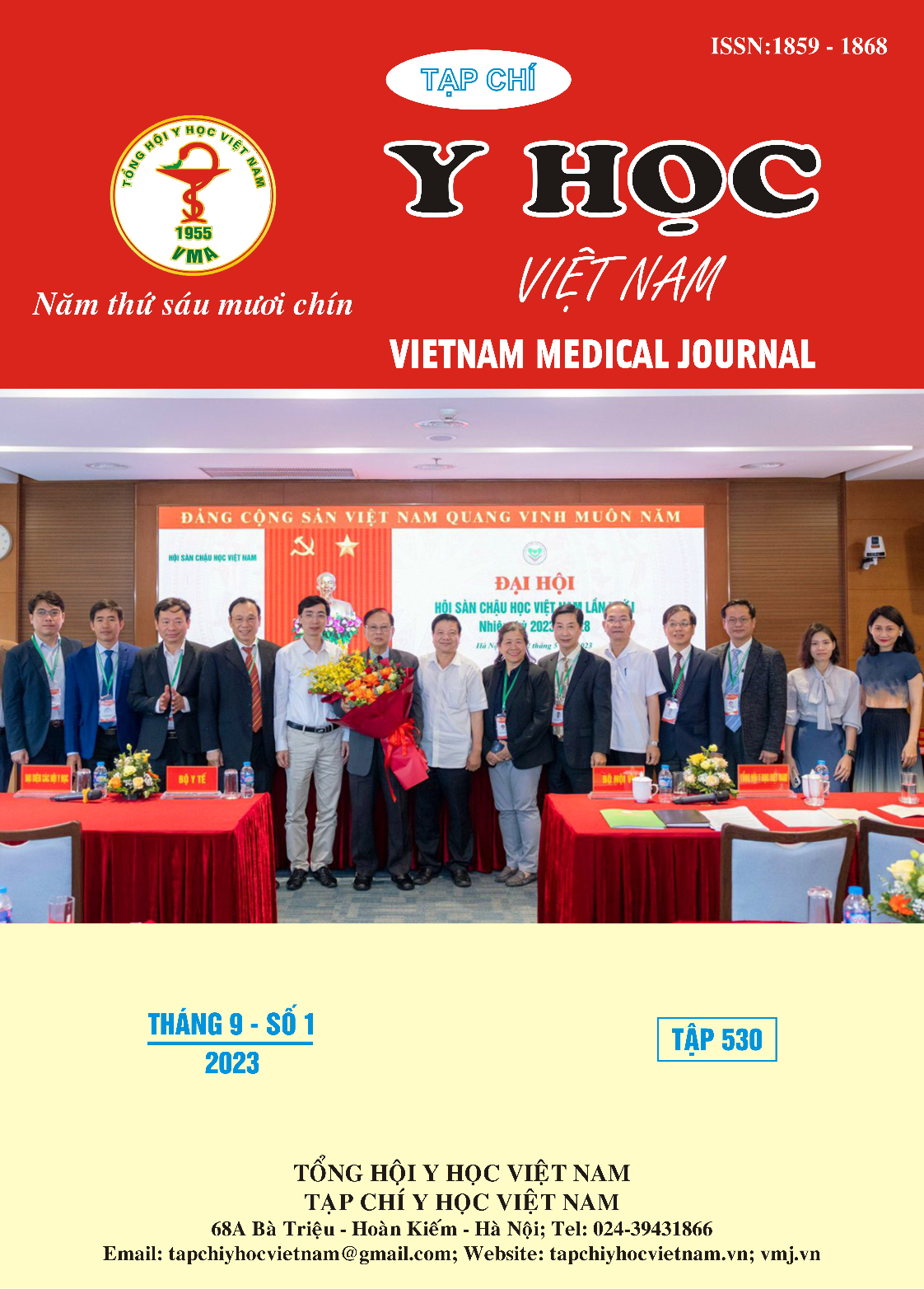STUDY ON THE RATE OF DEPRESSION AND SOME CLINICAL FACTORS RELATED TO DEPRESSION IN PATIENTS WITH ISCHEMIC INFARCTION
Main Article Content
Abstract
Objective: study the rate of depression, some clinical factors related with depression after cerebral infarction. Subjects and research methods:: prospective, cross-sectional study, 141 patients cerebral infarction at the Stroke Department 103 Military Hospital 103. Results: the rate of depression 34%, 44.6% of women and 27.1% of men had depression after stroke, with p < 0,05. Hemiplegia, language disorder, swallowing disorder had depression rates: 91.7%, 77.1% and 14.6%, depressed patients had an average NIHSS score of 11.20 ± 4,21 was higher than the group without depression, the difference was statistically significant with p < 0.05. Logistic regression analysis showed that female with OR 1.26, CI95%: 1.11 - 1.47, p < 0.05, NIHSS score with OR 2.48, CI95%:1.11 - 5.54, p < 0.05. Conclusion: The rate of depression was 34%, gender, hemiplegia, speech disorder, swallowing disorder, high NIHSS score increased the rate of depression in which gender, NIHSS score were independent factors.
Article Details
Keywords
depression, stroke, cerebral infarction
References
2. Hackett, M.L. and K. Pickles, Part I: frequency of depression after stroke: an updated systematic review and meta-analysis of observational studies. Int J Stroke, 2014. 9(8): p. 1017-25.
3. Williams, L.S., et al., Performance of the PHQ-9 as a screening tool for depression after stroke. stroke, 2005. 36(3): p. 635-638.
4. Hà, N.T.H. and L.T. Điền, NGHIÊN CỨU TỶ LỆ VÀ MỘT SỐ YẾU TỐ LIÊN QUAN ĐẾN TRẦM CẢM SAU ĐỘT QUỴ NÃO CẤP TẠI BỆNH VIỆN ĐA KHOA TRUNG ƯƠNG CẦN THƠ NĂM 2020-2021. Tạp chí Y Dược học Cần Thơ, 2021(41): p. 175-183.
5. De Ryck, A., et al., Risk factors for poststroke depression: identification of inconsistencies based on a systematic review. Journal of geriatric psychiatry and neurology, 2014. 27(3): p. 147-158.
6. Wang, Z., et al., Post-stroke depression: different characteristics based on follow-up stage and gender–a cohort perspective study from Mainland China. Neurological research, 2017. 39(11): p. 996-1005.
7. Kutlubaev, M.A. and M.L. Hackett, Part II: predictors of depression after stroke and impact of depression on stroke outcome: an updated systematic review of observational studies. International Journal of Stroke, 2014. 9(8): p. 1026-1036.


